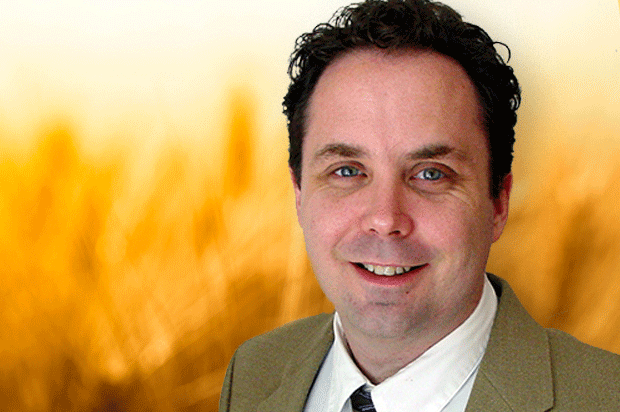Through-out this series, you will be introduced to several professionals who have graciously offered to sit with me for an interview. The people I have chosen to interview have professional experience in dealing with the specific topics and would not mind (I’m sure) if you contacted them with questions. Ok, enough of my blabbing – here we go…
Seida @ FTHC: What is your name? What are your qualifications?
Andy: Andy Young, LCPC, CADC, CPAIP
Seida @ FTHC: What is the name of your practice? Where is it located?
Andy: New Prairie Counseling Center
360 W. Butterfield Rd. Suite 120, Elmhurst, IL 60126
Seida @ FTHC: Tell us a little bit about yourself. Anything counts! =)
Andy: I've been in the counseling field about 20 years, and I absolutely love it. I consider it a privilege to witness the potential for healing and recovery in the midst of tough issues people face. My wife and I have two sons, currently in grade school. I often tell my clients that I am a proud, card carrying member of the mistake makers club, myself. In other words, if they could see me at home on any given day, they would realize that I have as tough a time as anyone else pulling off some of the skills that we often talk about in therapy. Getting it right is hard, but fortunately we often have plenty of chances to try again.
When I'm not working, I enjoy trying not to step on Legos while heading over to the couch to binge on Netflix with my wife. I do love spending time with my family. I also love playing music. It's been an important part of my life since I was a child. I used to write songs, but as my counseling career grew I noticed I had unintentionally stopped writing. At some point I realized that the same part of my brain that I use in writing songs, was now being employed in my role as a therapist. Songwriting is about building metaphors that allow the listener to view life in a different way. In many ways that's what being a therapist is about too. I still play several instruments as often as I can, somewhat professionally, and music is central to my own self-care.
Seida @ FTHC: What is your therapeutic specialty? How did you start in this area?
Andy: I help couples in conflict, parents and kids struggling with behavioral issues, and families affected by substance abuse and other problems.
I got into the counseling field sort of by accident. In my early twenties I had moved into the inner city from the suburbs where I grew up. Being struck by the needs around me, I soon began volunteering at a homeless shelter. After a while, I realized that I really enjoyed walking along side people through the healing process they were going through. The one common denominator that I saw in the people I worked with at that time was substance abuse, so I decided to become certified as an alcohol/drug counselor. I can't tell you how meaningful it has been for me over the years to have the privilege of being included in the support networks of so many courageous individuals.
I stayed in that field for a number of years, but eventually decided to expand to working with families and individuals on a broader range of mental health issues. Within the family therapy realm I learned the value of a solution-focused, or strengths-based approach to counseling. This means spending less time mired in the problem-saturated past so we can build reliable solutions based on successes, however small, that may already be occurring in the person's life. What I find with this approach is that therapy can often be more effective and often times more brief. In addition to substance abuse, my specialties include parenting, recovery from infidelity, divorce recovery, among other issues.
Seida @ FTHC: What tips do you have for people you work with about developing better relationships with those around them?
Andy: There's a meme floating around social media that says something like, "Be kind to everyone you meet, for you never know what battle they're facing." I've learned several things about relationships and communication over the years. And one key principle that helps almost any relationship issue is to give the other person the benefit of the doubt. This doesn't mean agreeing with them, it simply means becoming committed to finding something understandable about their position and communicating that understanding to them. Showing understanding or even empathy toward their position before stating yours often makes it easier for the other person to listen to you. And if you want to be listened to, you certainly want to make it as easy as possible for someone to do so.
I've also learned over the years that everybody wants to save face. No one wants to feel like a fool. Often times, tension or conflict occurs simply because someone has dug in their heels, trying to save face. We've probably all experienced a time when we were in a conflict with a loved one, and after a while couldn't even remember what we were arguing about anymore, but we kept up the resistance because we sure didn't want to be wrong. When you give someone the benefit of the doubt, and look for the understandable part of their argument, you are tending to their need to save face so that they might not have to tend to it so much themselves. This gives them more opportunity to focus on the issue and often more willingness to hear your argument. This makes it harder for them to continue viewing you as "the bad guy". I can't emphasize enough though, this is not about giving in or being walked on. This is about learning how to stand up for yourself, without leaving the other person feeling pushed down. When we use skills like this, the other person often responds in kind.
Seida @ FTHC: What is the biggest lesson you learned from a client?
Andy: One thing I've learned from the countless people I've worked with is that hope is measured by the sound of a heartbeat. In other words, if you're still breathing you've got a chance. Regardless of how bad things have gotten, recovery is always possible. I have so much respect for the resilience that I've seen in people facing adversity and hardship. Whether that's a woman trying to free herself from an abusive relationship, a teen struggling with drug use, a couple trying to hold their marriage together after an affair, or any number of other crises. People are resilient and have innate strengths that, when tapped into, can bring forth the potential for recovery and healing.
Seida @ FTHC: Any more nuggets of wisdom to share?
Andy: Eat more kale (Actually, I never eat kale). Go easy on yourself. We often find it easier to show compassion to others than ourselves. The idea of self-compassion sounds weird, but we need it. And it takes practice.
Tomorrow’s post: The Secret Life of a Teen: What They Wish You Knew



